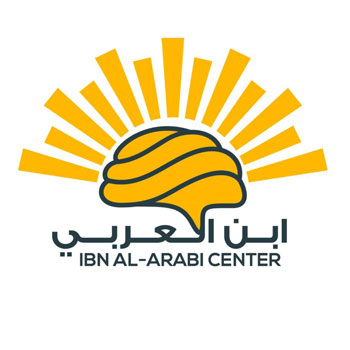The Effectiveness of Applying Artificial Intelligence in Enhancing Education and Its Challenges According to the Opinions of First Cycle Teachers in Oman
DOI:
https://doi.org/10.56989/benkj.v4i8.1134Keywords:
Artificial intelligence, challenges of artificial intelligence, first-cycle teachersAbstract
The study aimed to identify the degree of application of artificial intelligence in education and its challenges from the point of view of first grade teachers of basic education in the Sultanate of Oman, as well as highlighting the most important applications of artificial intelligence in education and its benefits and disadvantages. The study sample consisted of 200 teachers from the first grade of basic education in schools in Dhofar Governorate. The Artificial Intelligence and its Challenges Scale prepared by Al-Masoud et al. (2023) was applied, and validity and reliability were verified. The scale consists of three axes: lesson planning skills, lesson implementation skills, and lesson evaluation skills. It also aimed to identify the challenges of applying artificial intelligence in education. The study concluded with several recommendations to reduce the challenges faced. The results of the study showed a low level of (468.2 out of 5 on the five-point Likert scale) in the degree of application of artificial intelligence in education by teachers of the first grade of basic education, as the average application of lesson planning skills was about 550.2, and the average application of lesson implementation skills was 201.3, while the average application of lesson evaluation skills according to artificial intelligence was about 654.1. The results also showed that there is a high level of challenges in applying artificial intelligence skills in education, the arithmetic mean was about 480.3, and the challenges, according to the teachers' point of view, were that applying intelligence skills requires more effort than traditional teaching methods, the lack of technical support in schools in order to apply artificial intelligence effectively, the high cost of equipping classrooms to employ artificial intelligence, in addition to the teachers' lack of awareness of the importance of employing artificial intelligence in education, due to the scarcity of training programs in training teachers on artificial intelligence skills. The study resulted in a set of recommendations and proposals, including: preparing and training teachers on artificial intelligence applications in education, emphasizing the importance of technology and techniques in education, employing artificial intelligence applications in education to add an attractive environment, and to support the teacher and the learner, conducting studies on the impact of applying artificial intelligence in education on students' academic achievement, and a study on the application of artificial intelligence skills and its relationship to some demographic variables such as gender, specialization, educational qualification, and professional experience.
Metrics
References
قائمة المصادر والمراجع:
الحجيلي، سمر أحمد سليمان (2020): الذكاء الاصطناعي في التعليم في المملكة العربية السعودية. المجلة العربية للتربية النوعية، 4(11)، 383- 432.
الخبيري، صبرية (2020): درجة امتلاك معلمات المرحلة الثانوية محافظة الخرج لمهارات توظيف الذكاء الاصطناعي في التعليم، دراسات عربية في التربية وعلم النفس، رابطة التربويين العرب، (119)، 119- 152.
الخروصي، عيسى خميس (2020): تضمين مهارات الاقتصاد القائم على المعرفة في مناهج كامبريدج للرياضيات للصفين السابع والثامن ودرجة تطبيق المعلمين لها وفق آراء المشرفين التربويين بسلطنة عمان، المجلة العربية للنشر العلمي، (20)، 227- 252.
العوفي، حنان حمدان بشير (2021): إمكانية توظيف الذكاء الاصطناعي في تنمية القدرات الابتكارية في تدريس مقرر الرياضيات لدى طالبات المرحلة الثانوية وفق آراء المعلمات في المدينة المنورة، المجلة العربية للتربية النوعية، 5(20)، 157-202.
الغامدي، سامية فاضل (2020): واقع استخدام تطبيقات الذكاء الاصطناعي في مدارس التربية الخاصة بمدينة جدة وفق آراء المعلمات والاتجاه نحوها، المجلة الدولية للدراسات التربوية والنفسية، 8(1)، 57- 76.
السعيدي، حمد مسلم سعيد، البلوشي، فهد عبدالله محمد، الكعبي، محمد سعيد محمد (2023): مدى توافر تطبيقات الذكاء الاصطناعي في مناهج الدراسات الاجتماعية في مدارس التعليم الأساسي بسلطنة عمان، مجلة المناهج وطرق التدريس، 3(2)، 1- 14.
الشبل، منال عبدالرحمن (2021): تصورات معلمات الرياضيات نحو تعلم وتعليم الرياضيات وفق مدخل الذكاء الاصطناعي في التعليم العام بالمملكة العربية السعودية، مجلة تربويات الرياضيات، 4(24)، 278- 311.
الشيدي، خالد جمعة خميس، السعيدي، حميد مسلم (2022): درجة تضمين مفاهيم وتطبيقات الذكاء الاصطناعي في محتوى مناهج الرياضيات بمرحلة التعليم الأساسي، مجلة جامعة فلسطين التقنية للأبحاث، 10(5)، 169- 181.
العتل، محمد حمد وآخرون (2021): دور الذكاء الاصطناعي في التعليم وفق آراء طلبة كلية التربية الأساسية بدولة الكويت، مجلة الدراسات والبحوث التربوية، 1(1)، 30-64.
آل مسعد، فاطمة زيد، الفراني، لينا أحمد (2023): تطبيقات الذكاء الاصطناعي في التعليم وفق آراء معلمات المرحلة الثانوية، مجلة الجمعية المصرية للكمبيوتر التعليمي، 1(11)، 863- 900.
بكاري، مختار (2022): تحديات الذكاء الاصطناعي وتطبيقاته في التعليم. مجلة المنتدى للدراسات والأبحاث الاقتصادية، الجزائر، 6 (1)، 286- 306.
محمد، أسماء، محمد، كريمة (2020): تطبيقات الذكاء الاصطناعي ومستقبل تكنولوجيا التعليم، المجموعة العربية للتدريب والنشر، القاهرة، مصر.
محمود، عبدالرزاق مختار (2020): تطبيقات الذكاء الاصطناعي: مدخل لتطوير التعليم في ظل تحديات جائحة فيروس كورونا، المجلة الدولية للبحوث في العلوم التربوية، 3(4)، 171- 224.
نظام التعليم في سلطنة عمان، موقع البوابة التعليم بسلطنة عمان، بتاريخ 29/12/2023:
https://home.moe.gov.om/pages/14/show/16
Aldosari, S. (2020): The Future of Higher Education in the Light of Artificial Intelligence Transformations. International Journal of Higher Education, 9(3), 145-151.
Elleter S F et Al. (2018): Applying Neural Networks for Loan Decision in the Jordanian Commercial Banking System. International Journal of Computer Science and Network Security. Vol. (10), No. (01).
Marios A. Pappas, Athanasios S. Drigas (2016): Incorporation of Artificial Intelligence Tutoring Techniques in Mathematics.
OECD (2019), Artificial Intelligence in Society, OECD Publishing, Paris, Available on, https://doi.org/10.1787/eedfee77-en.
Downloads
Published
How to Cite
Issue
Section
License
Copyright (c) 2024 Ibn Khaldoun Journal for Studies and Researches

This work is licensed under a Creative Commons Attribution-NonCommercial 4.0 International License.































 ElDjawda Soft
ElDjawda Soft